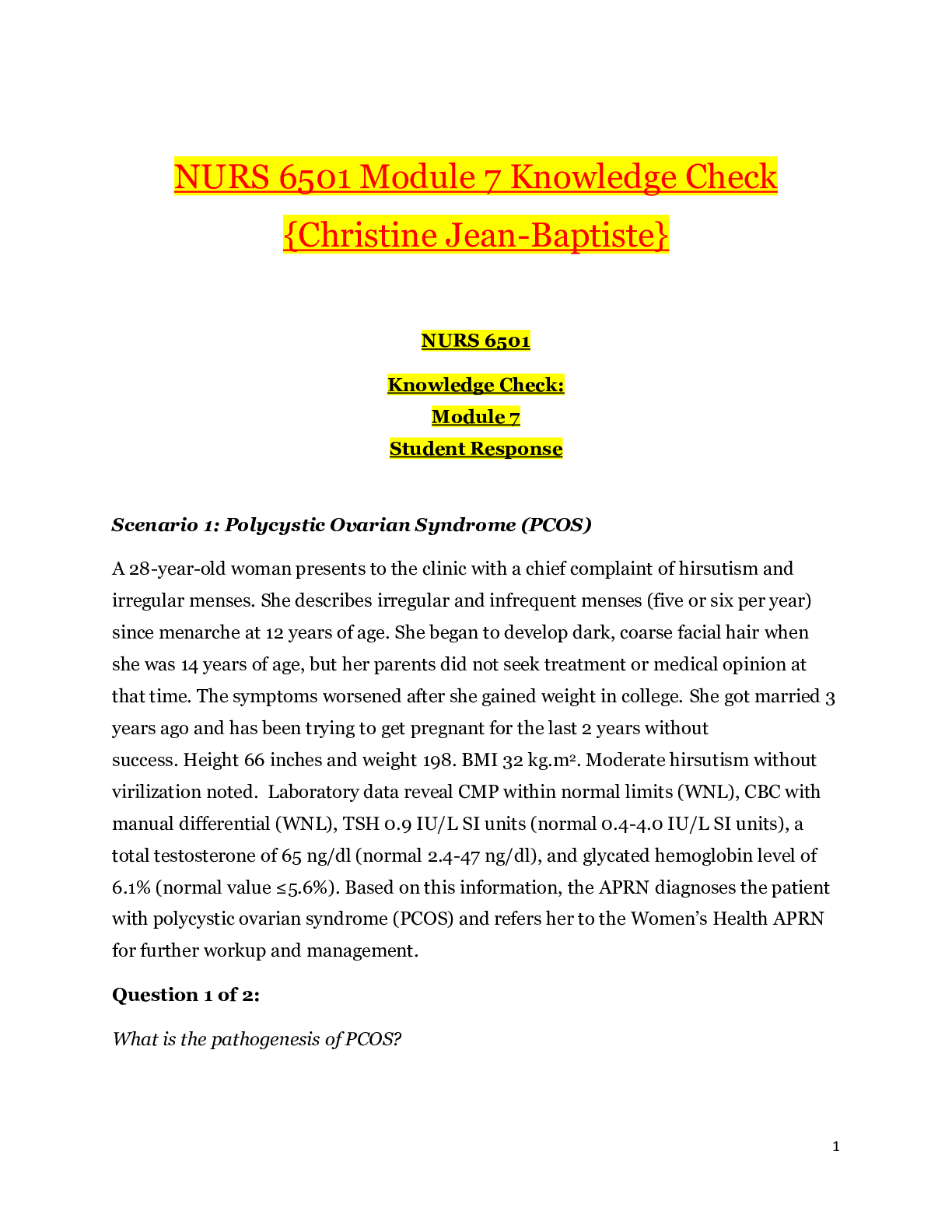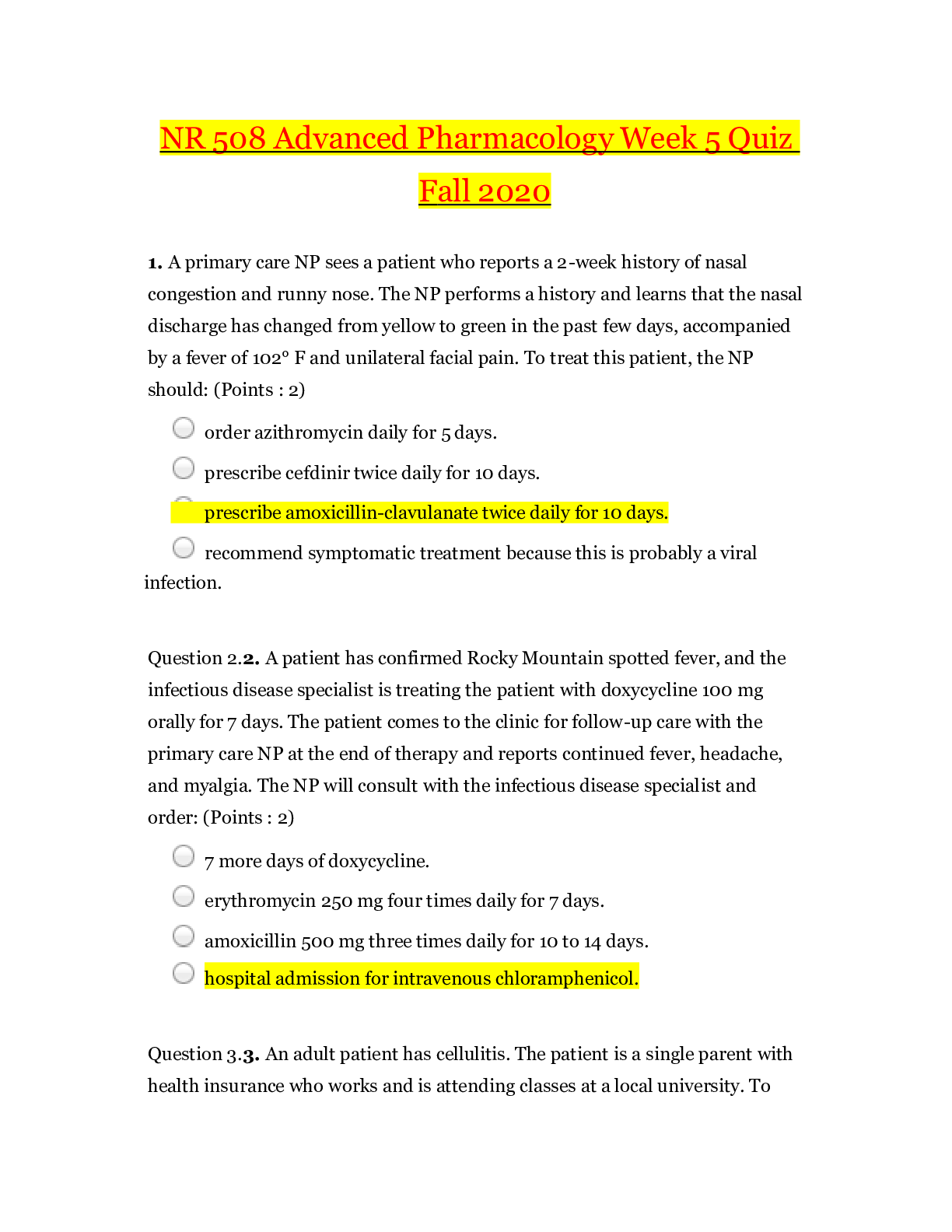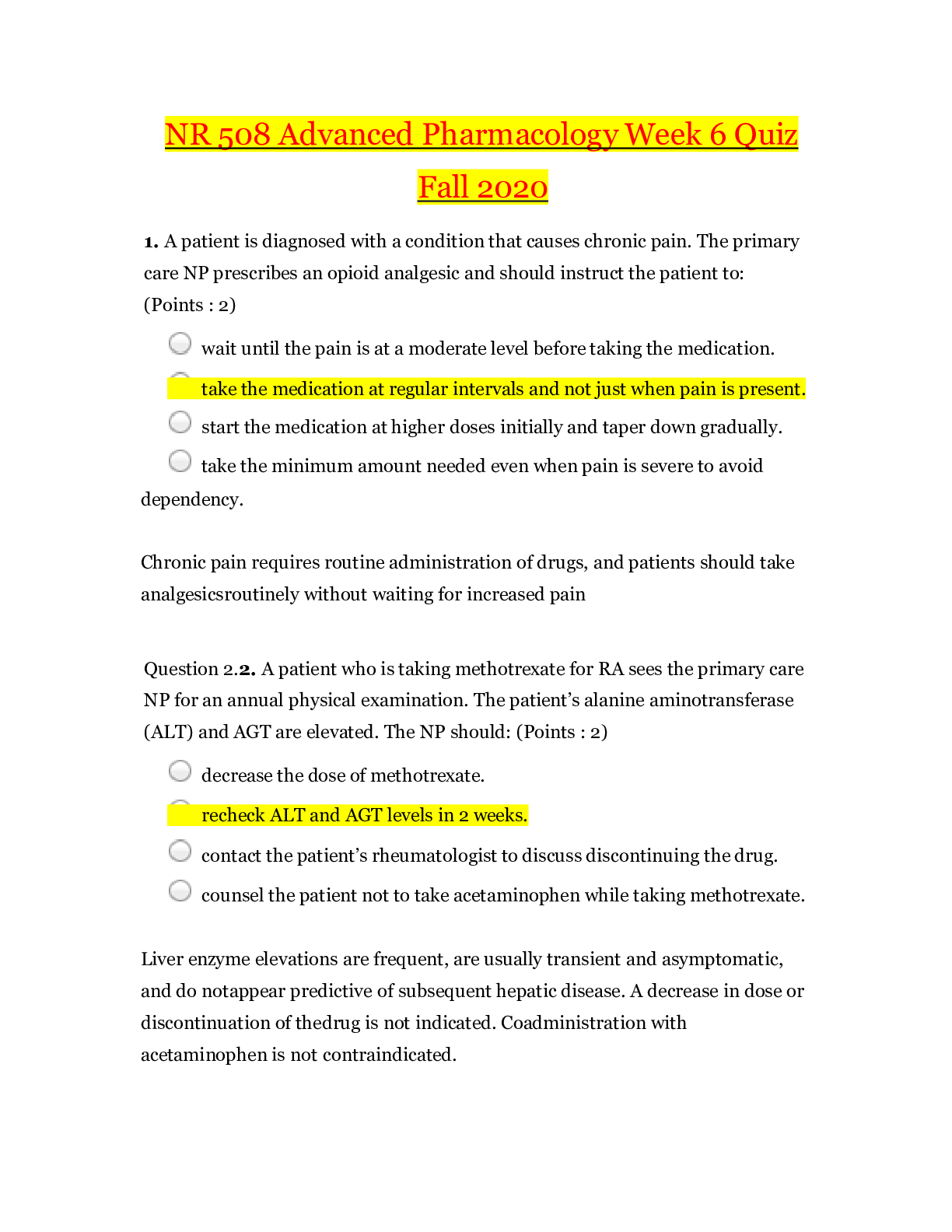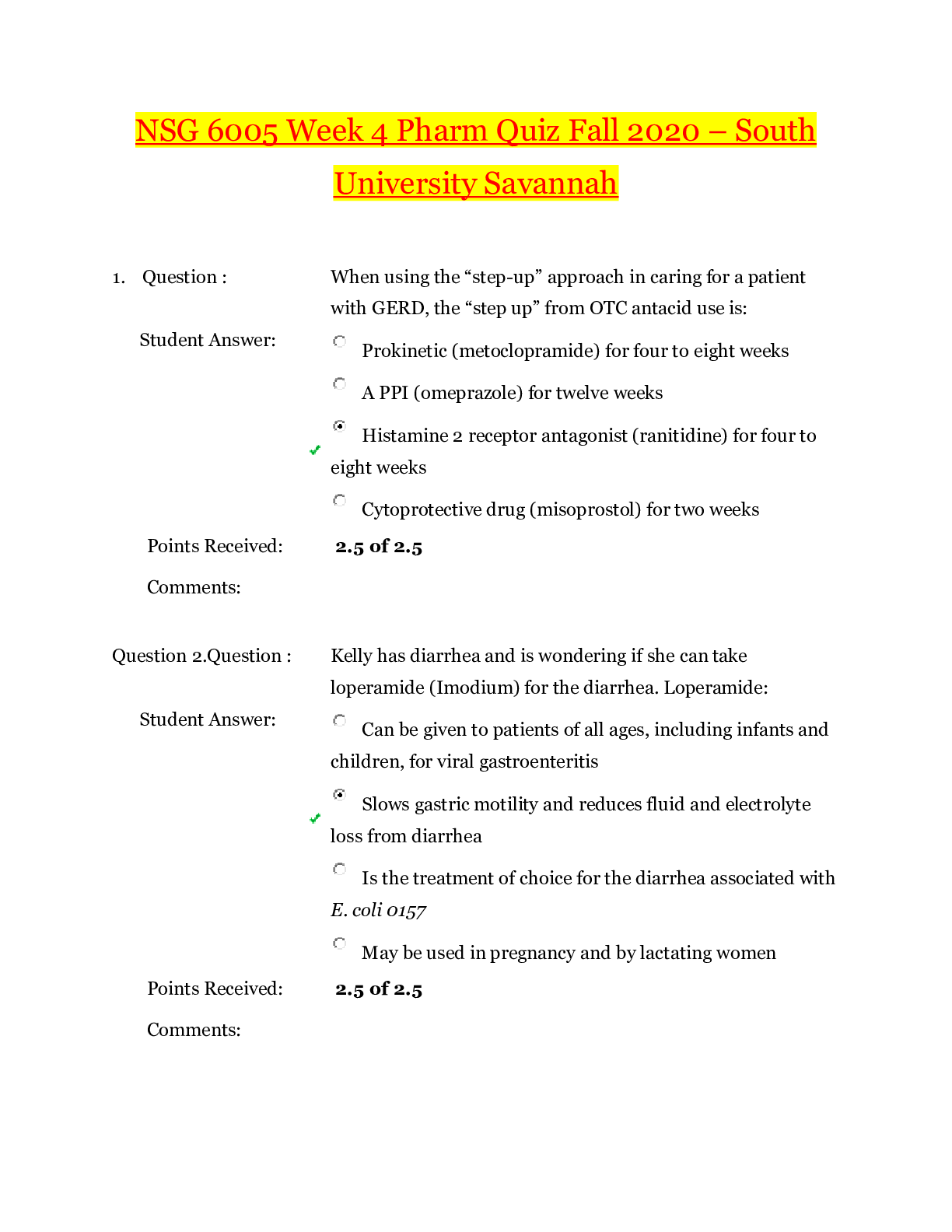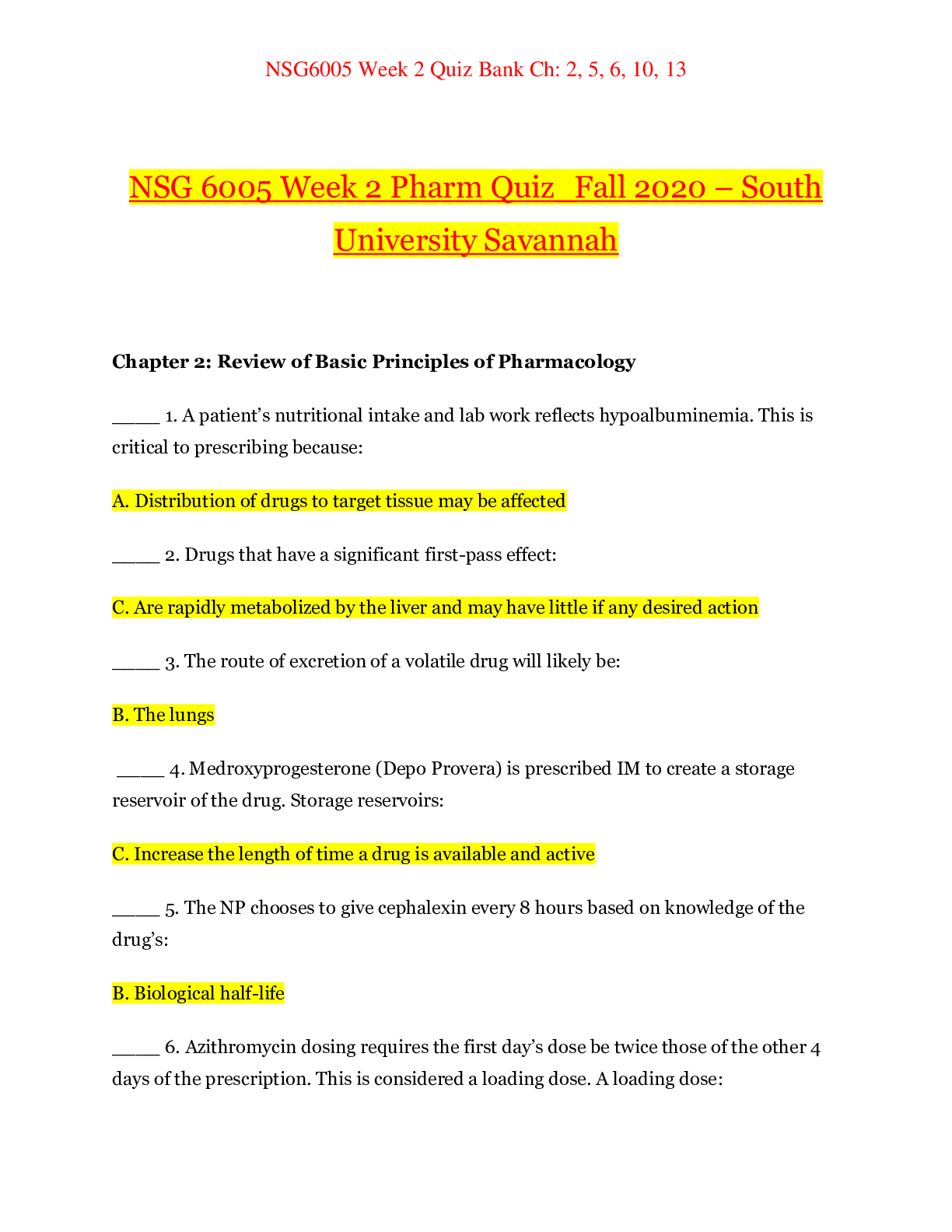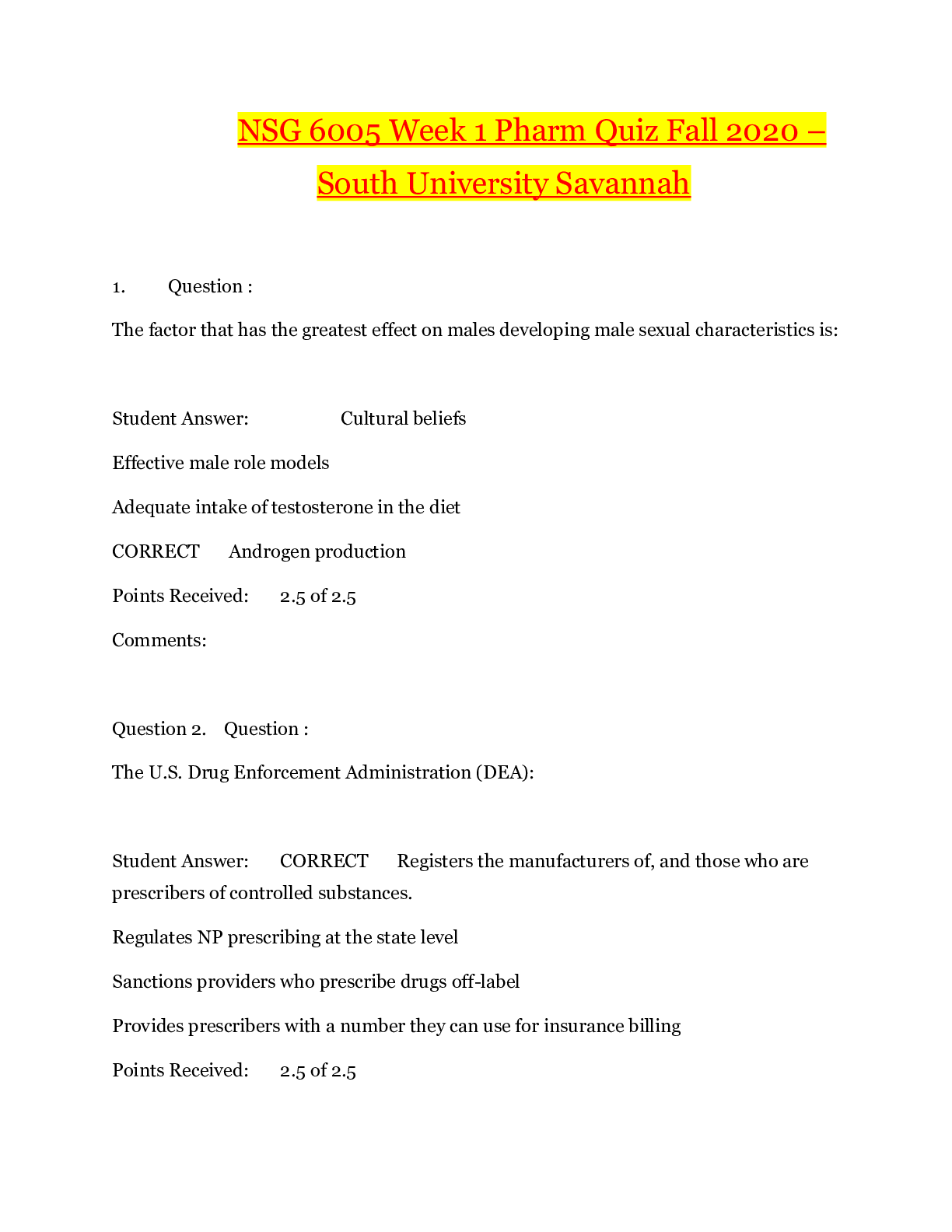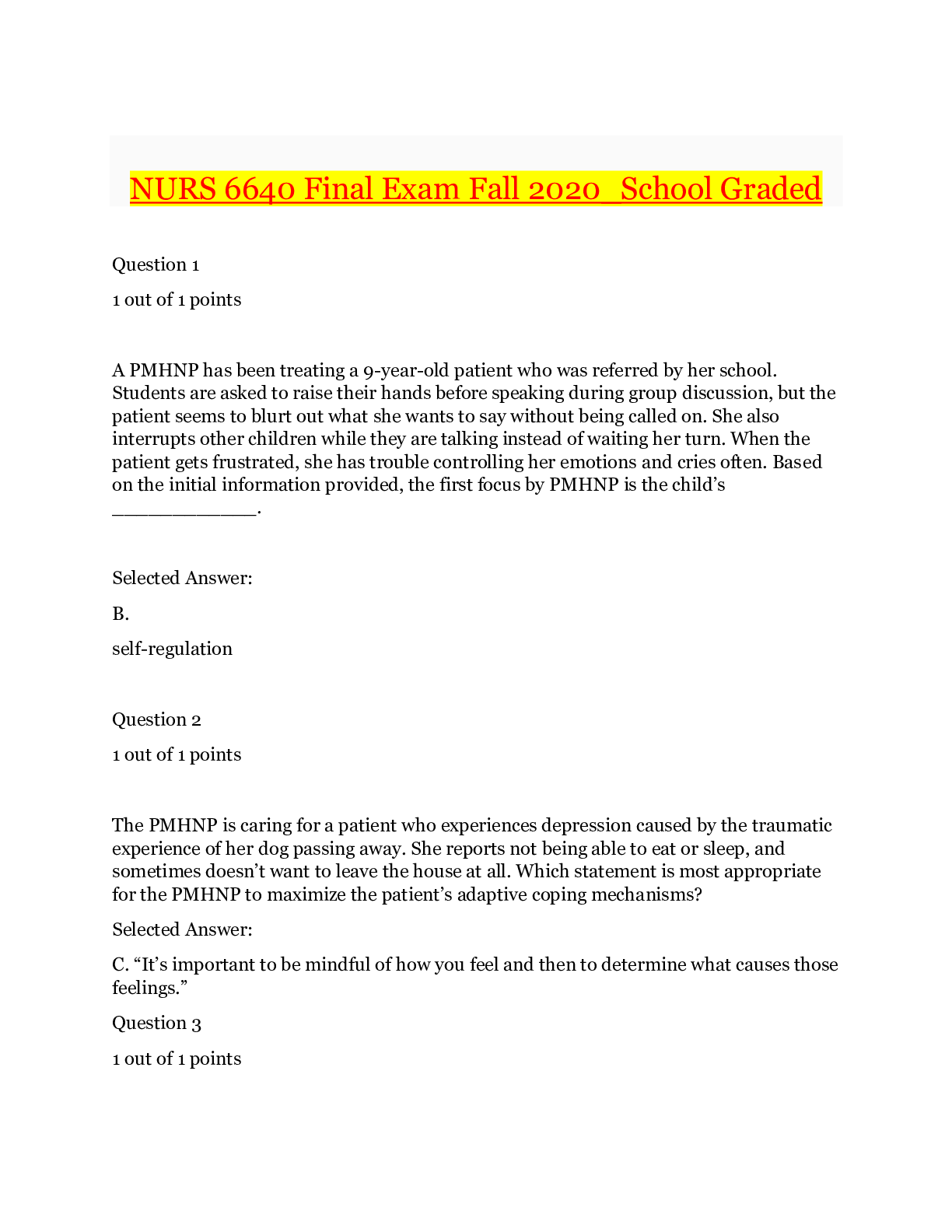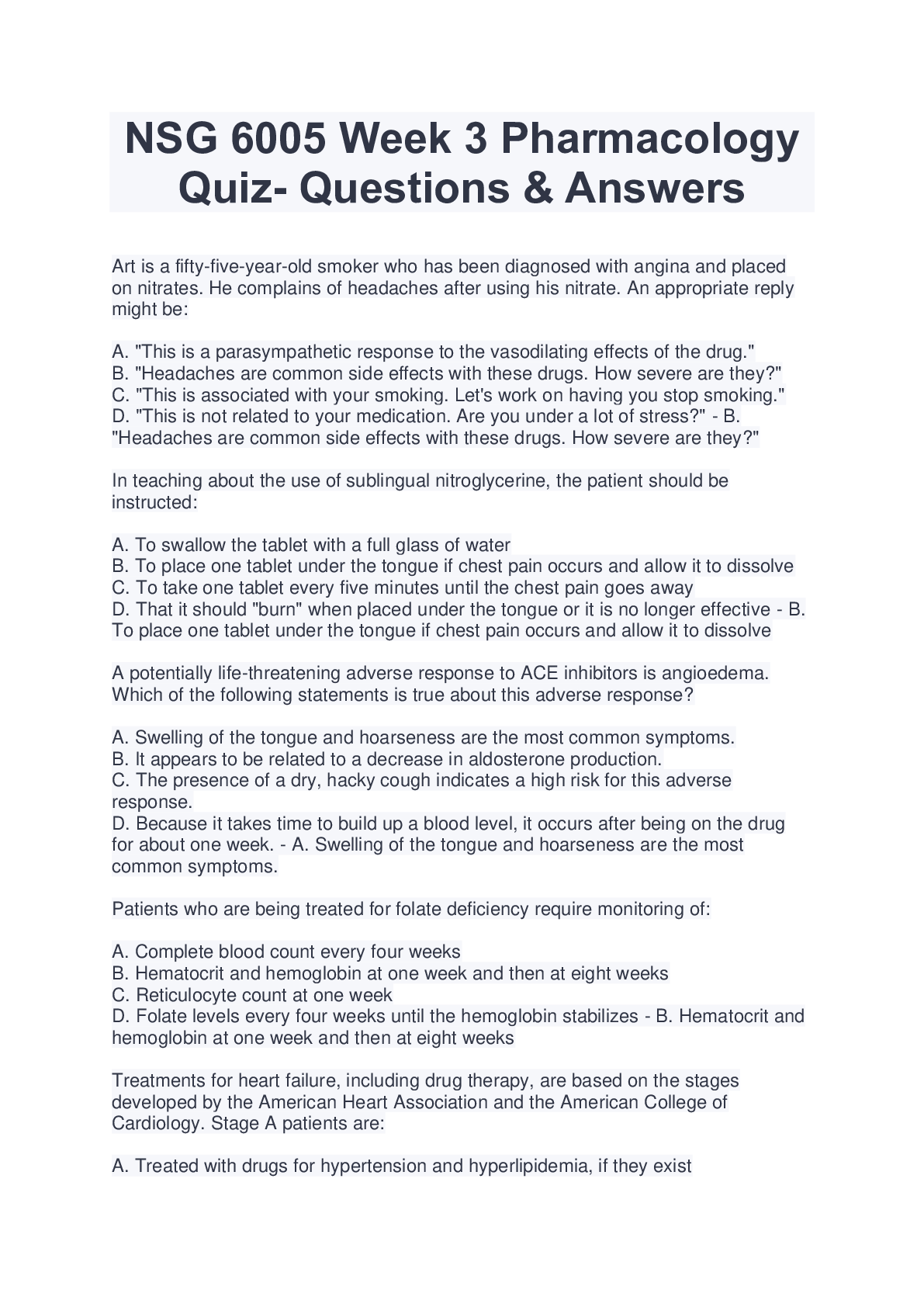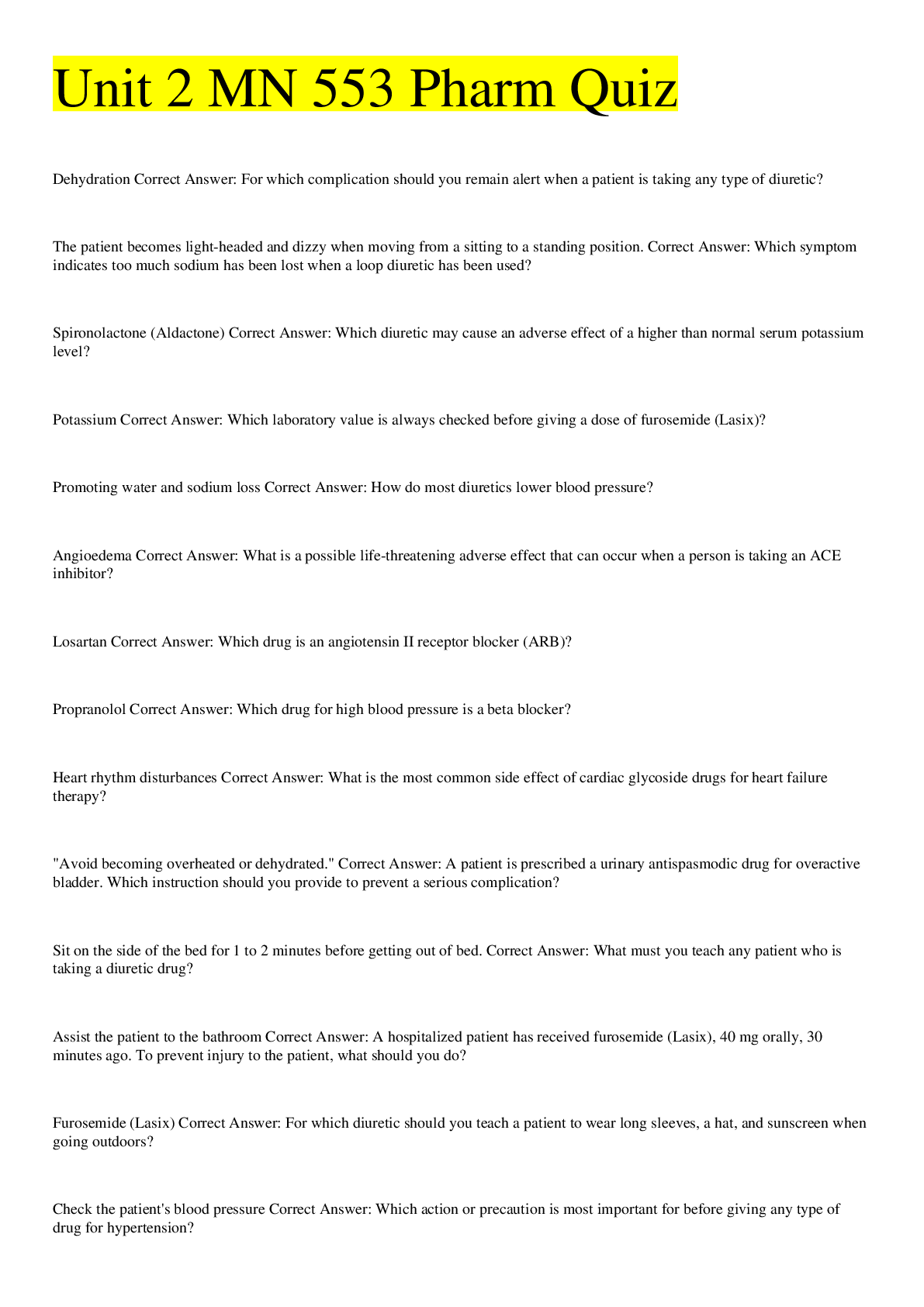Pharmacology > EXAM > NSG 6005 Week 3 Pharm Quiz Fall 2020 | NSG6005 Week 3 Pharm Quiz Fall 2020_Graded A (All)
NSG 6005 Week 3 Pharm Quiz Fall 2020 | NSG6005 Week 3 Pharm Quiz Fall 2020_Graded A
Document Content and Description Below
NSG 6005 Week 3 Pharm Quiz Fall 2020 – South University Savannah Question 1. Question : Scott is presenting for follow-up on his lipid panel. He had elevated total cholesterol, elevated triglyce... rides, and an LDL of 122 mg/dL. He has already implemented diet changes and increased physical activity. He has mildly elevated liver studies. An appropriate next step for therapy would be: Student Answer: Atorvastatin (Lipitor) CORRECT Niacin (Niaspan) Simvastatin and ezetimibe (Vytorin) Gemfibrozil (Lopid) Points Received: 2.5 of 2.5 Comments: Question 2. Question : Isosorbide dinitrate is a long-acting nitrate given twice daily (BID). The schedule for administration is 7 a.m. and 2 p.m. because: Student Answer: Long-acting forms have a higher risk for toxicity. Orthostatic hypotension is a common adverse effect. It must be taken with milk or food. CORRECT Nitrate tolerance can develop. Points Received: 2.5 of 2.5 Comments: Question 3. Question : The American Heart Association and the American College of Cardiology have devised a classification system for heart failure that can be used to direct treatment. Patients with symptoms and underlying disease are classified as: Student Answer: Stage A Stage B CORRECT Stage C Stage D Points Received: 2.5 of 2.5 Comments: Question 4. Question : Patients who are being treated for folate deficiency require monitoring of: Student Answer: Complete blood count every four weeks CORRECT Hematocrit and hemoglobin at one week and then at eight weeks Reticulocyte count at one week Folate levels every four weeks until the hemoglobin stabilizes Points Received: 2.5 of 2.5 Comments: Question 5. Question : Heart failure is a chronic condition that can be adequately managed in primary care. However, consultation with or referral to a cardiologist is appropriate when: Student Answer: Symptoms markedly worsen or the patient becomes hypotensive and has syncope. There is evidence of progressive renal insufficiency or failure. The patient remains symptomatic on optimal doses of an ACE inhibitor, a beta blocker, and a diuretic. CORRECT All the above options are correct. Points Received: 2.5 of 2.5 Comments: Question 6. Question : Furosemide is added to a treatment regimen for heart failure, which includes digoxin. Monitoring for this combination includes: Student Answer: Hemoglobin CORRECT Serum potassium [Show More]
Last updated: 2 years ago
Preview 1 out of 11 pages
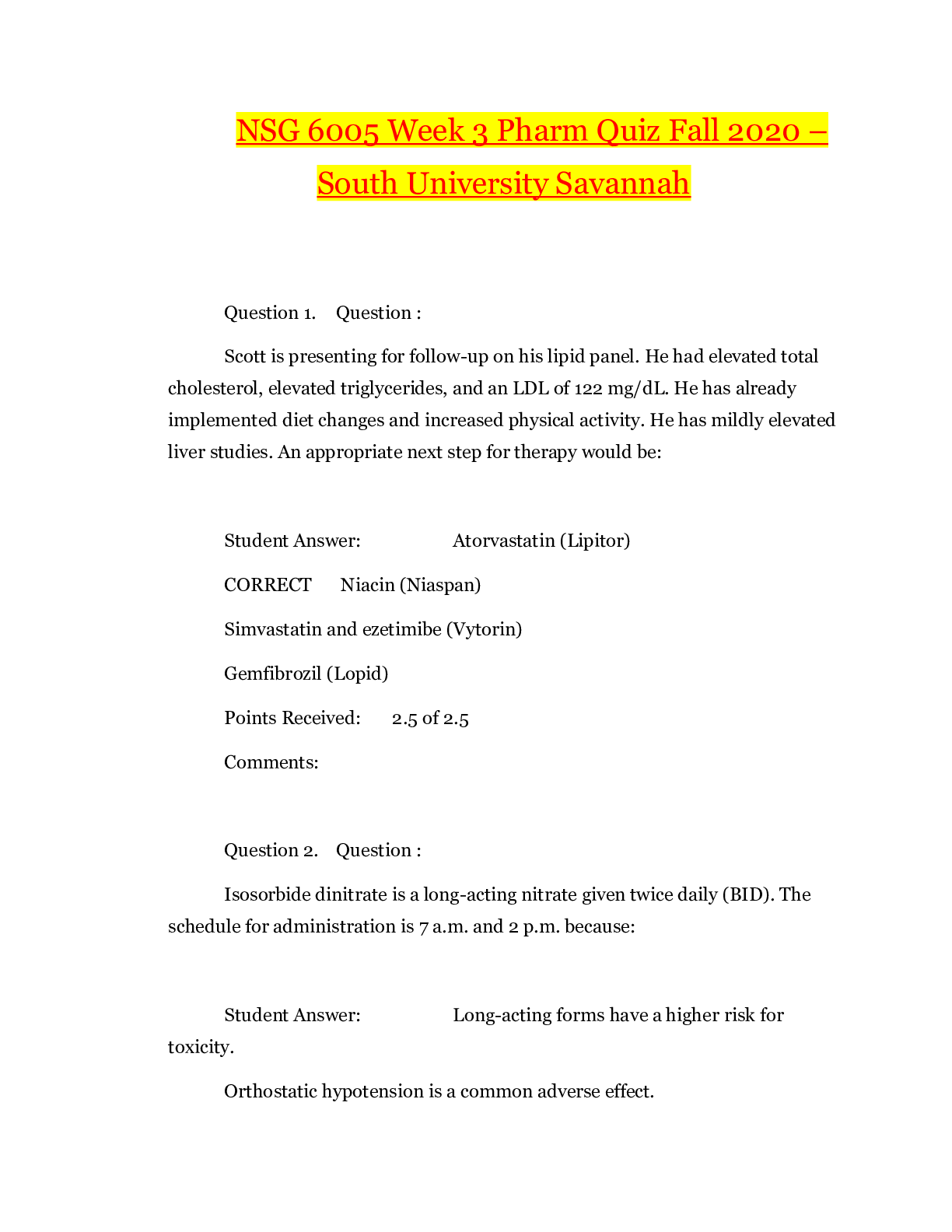
Buy this document to get the full access instantly
Instant Download Access after purchase
Buy NowInstant download
We Accept:

Reviews( 0 )
$12.50
Can't find what you want? Try our AI powered Search
Document information
Connected school, study & course
About the document
Uploaded On
May 10, 2021
Number of pages
11
Written in
Additional information
This document has been written for:
Uploaded
May 10, 2021
Downloads
0
Views
44

.png)





